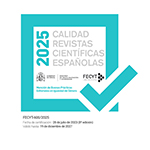Translating the Memory of the Holocaust: Thomas Geve’s Memoir
Resumen
This paper explores the most significant challenges of translating the memory of the Holocaust, focusing on the difficulties of transferring a survivor’s testimonial account to a different linguistic and cultural system. Because the concentration camp experience is inherently multicultural, and survivors have chosen to pen their ordeal in several languages, translation epitomizes a discipline that intertwines directly with the construction of universal collective memory. Consequently, translating Holocaust memoirs poses challenging questions on hermeneutics and deontology. Throughout the following pages, I will critically analyze my own Spanish rendition of Thomas Geve’s memoir, Guns and Barbed Wire: A Child Survives the Holocaust (1987), so as to delve into the ethical commitments borne by a translator, and into the formal and stylistic complexities inherent to the translation of concentrationary literature.
Descargas
Descarga artículo
Licencia
La revista Estudios de Traducción, para fomentar el intercambio global del conocimiento, facilita el acceso sin restricciones a sus contenidos desde el momento de su publicación en la presente edición electrónica, y por eso es una revista de acceso abierto. Los originales publicados en esta revista son propiedad de la Universidad Complutense de Madrid y es obligatorio citar su procedencia en cualquier reproducción total o parcial. Todos los contenidos se distribuyen bajo una licencia de uso y distribución Creative Commons Reconocimiento 4.0 (CC BY 4.0). Esta circunstancia ha de hacerse constar expresamente de esta forma cuando sea necesario. Puede consultar la versión informativa y el texto legal de la licencia.









